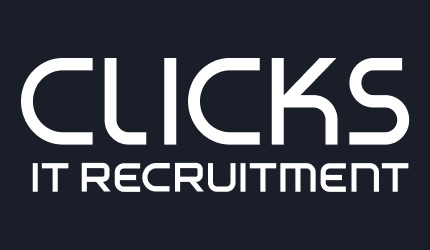Ensuring a potential candidate walks away from an interview feeling positive and motivated is a win-win situation.
The interview process is a critical touchpoint in the hiring journey. It is equally an opportunity to attract top candidates by showcasing your company’s culture and values, as it is to assess the candidate’s suitability for the role.
We understand that interviews make candidates nervous. All at once, they are under pressure to leave an impression and put forward their skills and experience. Combined with the uncertainty of the process and the fear of rejection they are already on the back foot. By creating a positive interview environment where candidates feel connected and engaged, are comfortable to speak openly, and respected throughout the process, you can attract top talent and significantly improve your chances of finding the ideal candidate for the role.
For recruiters it can be disappointing to hear when an interview has not gone well for a candidate we know could be a great match for a role. We relish the opportunity to connect skilled IT professionals in roles where they can thrive, enjoy career success and contribute meaningful outcomes to a team, an organisation or a project. It is not uncommon to spend some time preparing the candidates for their interview, to discuss the position, the company, and their compatibility and suitability for both.
Hiring Managers should use the interview as occasion to shape the candidate’s perception of the company and how they might feel about working there.
Learn more about creating a welcoming and engaging interview experience that leaves a lasting positive impact.
Appointing, Not Disappointing a Candidate
When it goes poorly, the candidate is disappointed, and we’re disappointed that the interview did not deliver what was, on paper, a great match.
If a person is in great need of securing work, they may even accept the job and start planning their exit strategy. This results in, you guessed it, disappointment for the hiring manager and the company, who in a short period will need to start the process all over again.
Disappointment all round, it seems.
Where did things go wrong? As a hiring manager it is important to structure a positive interview experience, deliver on your Employer Value Poposition and create an impression that will not harm your reputation, and inadvertently risk future hires. People’s professional networks can stretch wide, so if a story about one bad experience got told around the conference registration table, you may just have lost a future great hire without even knowing.
Little Things = Big Impact
Simple ways to establish rapport include:
- A warm greeting
- Appropriate introductions
- Maintaining eye contact
- Suitable small talk like, how was your travel in to our office today?
Even a weather comment will suffice here, it’s what it was bult for.
We have heard several anecdotes where thing have just gotten off to a rocky start:
- The interviewer arrives late, without apology or acknowledgement of the candidates time
- No introductions
- No friendly greetings
- The hiring manager distractedly flipping through the candidates resume while the interviewee is earnestly putting themselves forward.
Kinds of Kindness
The Click Groups CEO Tamara Ryf wrote an about leadership and how empathy and kindness can be applied to set the scene for a positive interview. These sentiments have not lost their importance.
Be considerate. Consideration and preparedness go hand in hand. Being prepared shows that you acknowledge the candidate’s time and effort, helps them relax into the interview and makes the whole process easier and more successful for both parties. Simple, but often overlooked ways to prepare include:
- Review the candidate’s CV before the interview
- Making notes of areas to explore further
- Compile an interview guide that captures the specific technical skills, knowledge, experience, and competencies required for the role
Ensure you have the right CV for the right candidate. They don’t want to feel like a name on a list. Making them feel like they are as valued as they value the opportunity sets the right tone for a successful mutual conversation about their potential employment. Set an agenda to avoid confusion and allow the interviewee to appropriately respond to questions. You will get as much out of this as they will.
Interviews Are a Two-Way Street
Top tier candidates will always be in high demand. It is important that your organisation is as attractive to them as they may be to you.
Interviewers should be able to easily articulate the company’s EVP, and what they find rewarding about their role. If you can’t sell your culture, market position, learning and development program, career progression opportunities, and non-monetary benefits, you’ll likely lose this great candidate to a competitor who can.
Finish Strong
Closing out an interview effectively is just as important as properly kicking off the interview. A strong and positive conclusion of the interview should include:
- Ask the candidate if there is further information they would like to share
- Provide the opportunity for questions to be asked
- Thank them for their time
- Advise next steps and likely timeframes
Allowing the candidate the opportunity to share further information about their skills and experience at the end of the interview, gives them space to provide more insight into what they can bring to the table; often there are things you haven’t even thought of that are valuable attributes and skills. Candidates will think positively about an organisation if they participate in an interview where they feel heard, seen and competent. Even if they are not successful in securing the role, you have contributed positively to their next interview experience – and you never know, your paths may cross again further along in your careers.
Given the time and effort candidates typically spend preparing for interviews, taking some time to make it a good an positive experience for all interviewees is just good practice.









